Any KT Thoughts on Assisted Living?
5 years ago
Featured Answer
Sort by:Oldest
Comments (53)
- 5 years ago
- 5 years ago
Related Discussions
Independant/Assisted Living VS Living at home
Comments (7)In the past few years I've gone through a similar, but not identical, situation with my mother. She was a very strong willed and intelligent woman, and the family struggled with her physical decline. My father died in 1980 and she coped with the house for several years afterwards. But eventually it was too much for her. She moved in with me 9 years ago, then into an independent living facility 3 years ago. She passed away just a couple weeks ago. (Guess that explains why I'm sitting at the computer sleepless at 3:30am!) The decision to move from my home into independent living was very painful for all of us, so I'm sympathetic with what you are going through. I guess it was about a 6 month process from the time we first started talking about it until it happened. With 2 parents involved, your process will likely take a little longer. We were able to finally convince my mother that we would handle all the parts of the move that she didn't know how to do, that we would be there often to help with church, doctor visits, groceries, weekly dinners out, etc. Our biggest concern about having her still at home was that she had no social life, no one close to her age to talk to and share with, and no one around for too many hours in the day. We were only here in the evenings and both my husband and I had to travel some for our jobs. It's very important for elderly folks who are on medications to eat at the same time every day so they can take their meds. With our work schedules, even though I changed jobs to be home more often, meal time wasn't as standard as she needed it to be. And she started falling down a lot. No injuries, but we knew it was only a matter of time. Like I said, it was a hard time for us all. She felt like we were kicking her out and we felt like we had failed and could not take care of her. But after checking out a couple places, she found one that appealed to her. She declared at the time that she would be dead in 6 months, but with so many stresses removed she lived 3 years and made many good friends. I won't tell you she ever stopped complaining but her life there was good and the people around her valued her friendship and the support she gave them. Asolo gave you good advice: without having your folks declared incompetent by the court, you can't force a power of attorney. They have to willingly sign it. And under no circumstances can you sign their Will. However, you can write the Will up and ask them to sign it - be sure to have it witnesses! I would recommend you keep it as simple as possible - maybe even just one page that states you and your siblings will split everything equally - that way you have the greatest chance of your father agreeing to sign it. Part of his grumpyness may be fear. It's scary to realize you aren't in control of your own life anymore and in many people that fear comes out as anger. If he was like that before, it will only get more pronounced as he ages. Your parents are lucky to have you there to help them and to try to make things easier for them. Be patient and take it slow. They are used to taking care of you, so it will be hard for them to see the roles switch. Let your parents have as much control and dignity as possible; they've earned it and they need it now more than ever. For my mother, depending on someone else felt like failure to her and there was no way to eliminate that. We just tried - and sometimes failed - to make it as easy as possible. But it was worth the effort. Kate...See MoreHow to talk to Dad about assisted living...? (long)
Comments (25)Hi fraternal member of the zoo, I'm sure that you'll be able to arrange an alternative, or successor, or "fall-back" Power of Attorney, and it'll be necessary to have each of the various alternatives (who gets incapacitated, dies, etc. first) provided for ... though with your Mom being deeply into Alzheimers, there's no way that she can be POA for Dad. You need both the financial situation, and the medical issues dealt with. I like the idea of having all/most of you have a meeting with lawyer and Dad. In fact, if Dad's lawyer isn't pretty well aware of the various ramifications at the moment, it might be a good idea for some of you to meet with him/her prior to your and her/his meeting with Dad, to get him/her up to speed. I wouldn't be at all surprised if he'll likely be able to convince your Dad of some stuff that you can't/haven't been able to, up till now. A while ago one of the posters around here, in the finance forum, told of talking till she was blue in the face with her husband about some financial situations that she, who is fairly literate financially, thought that they should do, to be met with world-class foot-dragging. When the financial planner, that they've been with for years and respect deeply, suggested pretty well the same thing(s), he agreed to pretty well everything like a little lamb. Well, not exactly that docile, I guess ... but sort of close. Whether her grinding had worn him down somewhat and the meeting with the planner pretty well was the tipping point, or whether he'd have gone along meekly if he hadn't heard such proposals earlier, I can't say, of course. But quite a few of us will go along with something proposed by a professional, when we wouldn't hear of it from someone else ... even a spouse (especially a spouse, perhaps?). I rather like the idea of them going into a facility in the place where two of the siblings live, if they can be together, would welcome/accept that idea and you feel that the siblings are willing and able to provide a great deal of the care that he needs (and will need increasingly, no doubt). And would actually come through, if that arrangement were to be set up. Has your Dad enjoyed a substantial amount of direct interaction with the folks who were his buddies through the years of his life, especially in recent years? Would he be able to phone them were he to move to the other city? Would he find that satisfactory? That seems to be about all that I have to suggest, at the moment. Good wishes to you all as you go about making the necessary decisions and putting them into effect. I send some good thoughts and hopes to you, with a prayer that you all may choose well and all be pleased with those choices after a period has elapsed. ole joyful...See MoreAssisted living and just a microwave-Ideas?
Comments (22)Thank you all again. The food was fabulous--nutritious, perfectly prepared, delicious, served in a dining room that looked more like a pricy restaurant than a cafeteria (it wasn't cafeteria style--the residents were served at their linen-covered tables, on china). Not only will she get good meals if she The food was fabulous--nutritious, perfectly prepared, delicious, served in a dining room that looked more like a pricy restaurant than a cafeteria (it wasn't cafeteria style--the residents were served at their linen-covered tables, on china). Not only will she get good meals if she eats in the dining room, but she'll be able to meet people, make friends, and--I think--will adjust to her new lifestyle quicker. I had dinner with her last Wed, and it was just as you described, and everyone was 'dressed up' for it too IMHO. Yes, she will pretty well be taking 2 meals per day in the dining room, as she will continue to fix her own breakfast...nutritious cereal, with fruit/nuts, and a piece of fruit or juice. However, there are times when you just want to cook for yourself. Exactly. I was thinking of her occasionally making something for 'us' like old times at her house....or something she was particularly hungry for. I also found out there is a full 'group' kitchen available for the residents, for just such things. Not knowing if she chose assisted living because of physical or mental deficiencies it's hard to say just how much she can handle... In either event it may be wise to show her how to do things Yes...and probably a couple of times too. She is early stage Alz, but with structure, getting her meds on time, and some routine, we hope she will respond and do well/better than she was at home (son living with her) with no structure/routine, days and nights mixed up, and so much clutter, upset, and nothing very handy. I just talked to the home and they have a chili cook-off in the works. Residents and outside family members are all invited to attend and/or enter. I hope it will work out for her to make her 'killer' chili, complete with my home canned tomato juice. It should be fun! Above all, visit her as often as you can, if only for a few minutes. I'm about 1/2 hour away so for years we have done a lot of vising via phone (nearly daily)...usually anywhere from 1/2 to 2 hour visits. She is to get her phone turned on today and I'll take her a phone and check that it works tomorrow. Woohoo! I will once again be able to let her know I am thinking of her anytime I want to...and she me. She used a microwave some at home so she is at least used to using one for heating things up. Sue...See Morevisiting an assisted living place
Comments (21)chisue, there's all sorts of retirement communities, all sorts of variations of independent, assisted, and total care arrangements, so I can't speak for everyone. At my dad's not-for-profit community, residents are strongly encouraged to keep 6 foot apart, wear masks when walking about, and confine their walking to their own "area" (generally a cluster of 16 residential rooms) or walk outside. But yes they can and do talk with each other. Staff are examined as they report for duty each day. Staff who interact with residents are focused on a certain area -- so both the residents and staff are kept as much as possible in separate "bubbles" instead of being scattered throughout the whole campus. The thought is that viral spread by "pre-symptomatic"* staff would therefore be limited in scope rather than scattered throughout the whole campus. So far so good -- only two staff people who self-isolated early, and zero residents with the virus. Dad's place hasn't allowed new people to move into the community at all since mid-March. (There is a short-term skilled nursing area that has one wing set aside for 'new' admissions.) When Virginia moves into Phase Two, they will be able to allow new residents in Independent Living; but assisted and memory care will continue to be closed to anyone other than existing Independent Living residents who must have more care -- no new "outsider" admissions. A smaller, cheaper, for-profit nursing home in town had over 20 resident deaths -- they did not take so many precautions. Things to keep in mind if/when anyone considers a move. *pre-symptomatic vs. asymptomatic, terminology clarification necessary thanks to the WHO :-(...See More- 5 years agolast modified: 5 years ago
- 5 years ago
- 5 years ago
- 5 years ago
- 5 years agolast modified: 5 years ago
- 5 years agolast modified: 5 years ago
- 5 years agolast modified: 5 years ago
- 5 years ago
- 5 years ago
- 5 years ago
- 5 years ago
- 5 years agolast modified: 5 years ago
- 5 years ago
- 5 years ago
- 5 years ago
- 5 years ago
- 5 years ago
- 5 years ago
- 5 years agolast modified: 5 years ago
- 5 years ago
- 5 years ago
- 5 years ago
- 5 years agolast modified: 5 years ago
- 5 years agolast modified: 5 years ago
- 5 years ago
- 5 years ago
- 5 years agolast modified: 5 years ago
- 5 years ago
- 5 years ago
- 5 years ago
- 5 years ago
- 5 years ago
- 5 years ago
- 5 years ago
- 5 years ago
- 5 years ago
- 5 years ago
- 5 years agolast modified: 5 years ago
- 5 years ago
- 5 years ago
- 5 years ago
- 5 years ago
- 5 years agolast modified: 5 years ago
- 5 years ago
- 5 years ago
- 5 years ago
- 5 years agolast modified: 5 years ago
Related Stories

HOME TECHThe Most Stylish Home Assistants to Make Any House High-Tech
Because who wants to look at a clunky gizmo every day?
Full Story
ENTERTAININGSummer Living: How to Welcome Weekend Guests
Thoughtful touches and smart planning make summer visitors feel right at home
Full Story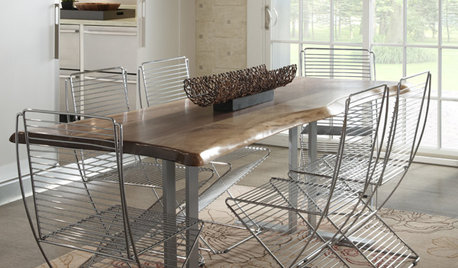
REMODELING GUIDESLoving Wood's Live Edge
8 ways to use more of a tree's natural beauty in design
Full Story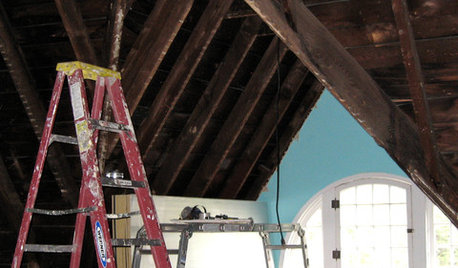
REMODELING GUIDES8 Lessons on Renovating a House from Someone Who's Living It
So you think DIY remodeling is going to be fun? Here is one homeowner's list of what you may be getting yourself into
Full Story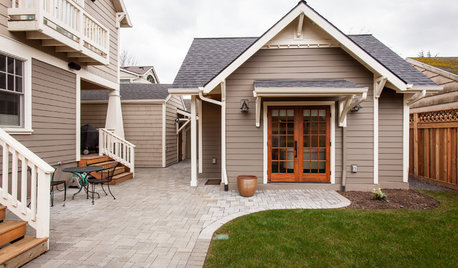
UNIVERSAL DESIGNSmart Space-Sharing Options for Living With Aging Parents
Freestanding in-law unit or modified guest room? Consider your needs as well as your parents’ if they’re moving in
Full Story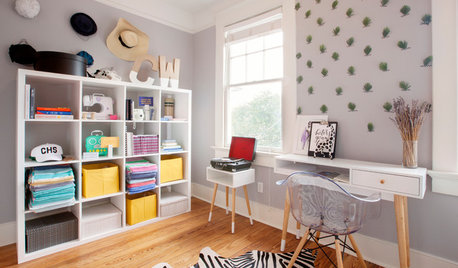
DECLUTTERINGLiving With Less: Do You Have Too Much Stuff?
To help her clients pare back, a professional organizer asks them 3 questions about the things they own
Full Story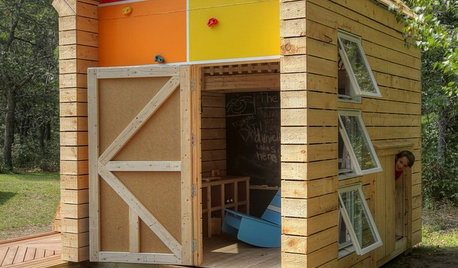
KIDS’ SPACESFun Meets Philanthropy in a Lively Playhouse
Kids rule this little play-based kingdom, but the money it raised helps children in the real world
Full Story
GARDENING GUIDESHealthy Home: How to Go Green With a Living Wall or Roof
See 10 ways to add this earth-friendly element to your home
Full Story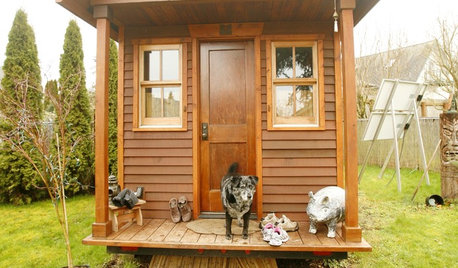
SMALL SPACESLife Lessons From 10 Years of Living in 84 Square Feet
Dee Williams was looking for a richer life. She found it by moving into a very tiny house
Full Story
SMALL HOMESHouzz Tour: Sustainable, Comfy Living in 196 Square Feet
Solar panels, ship-inspired features and minimal possessions make this tiny Washington home kind to the earth and cozy for the owners
Full Story


blfenton